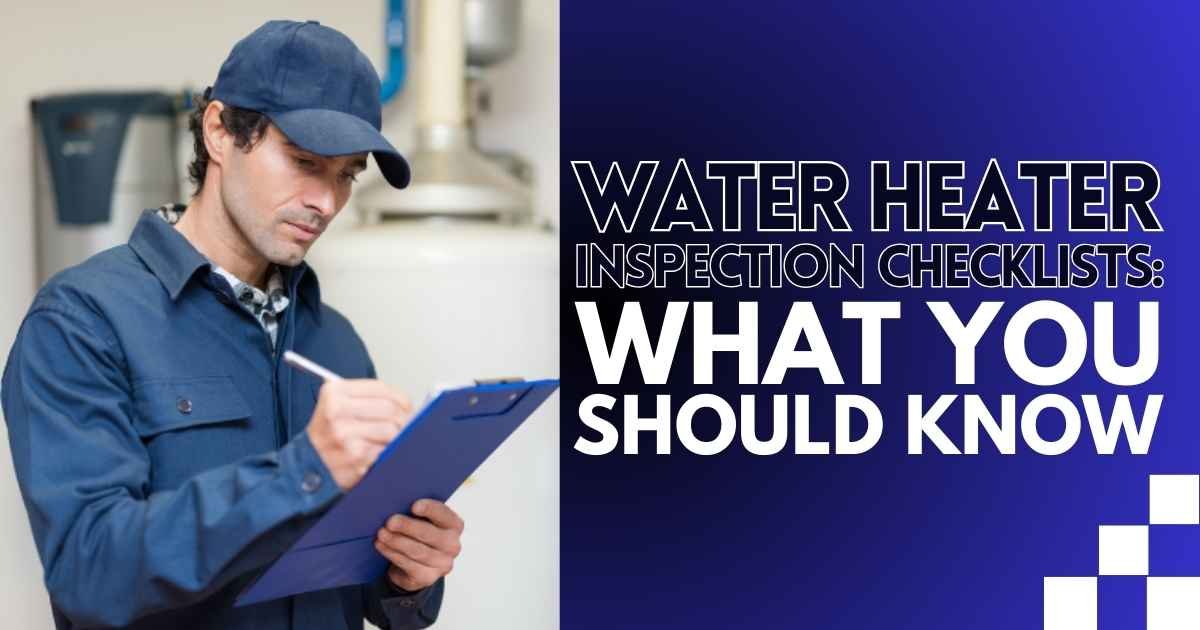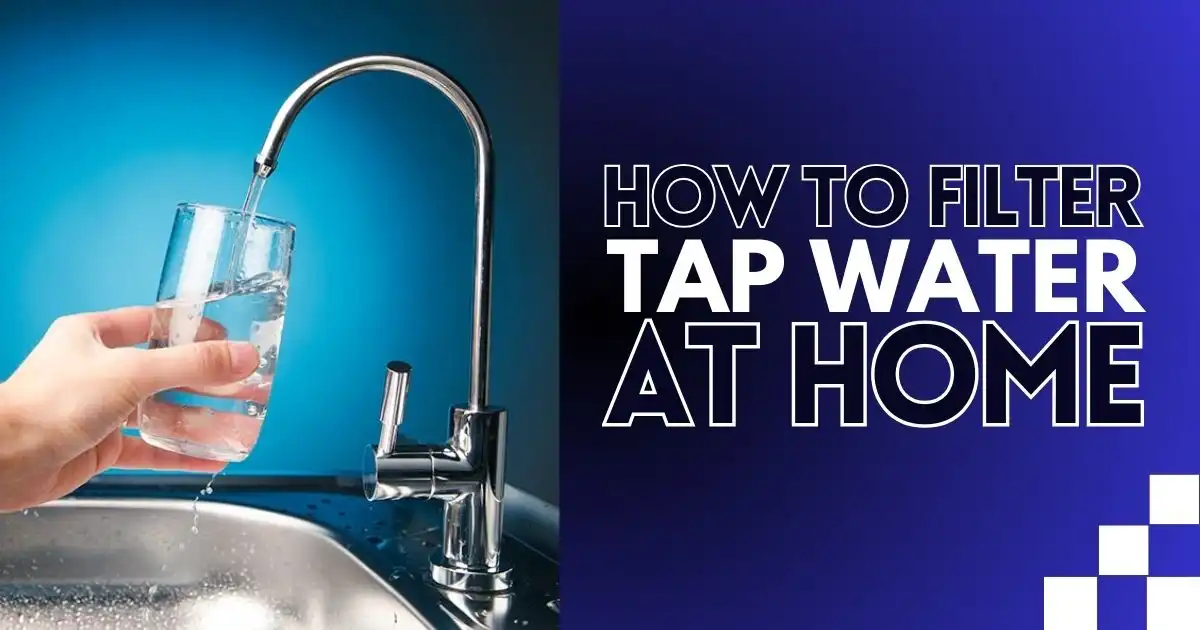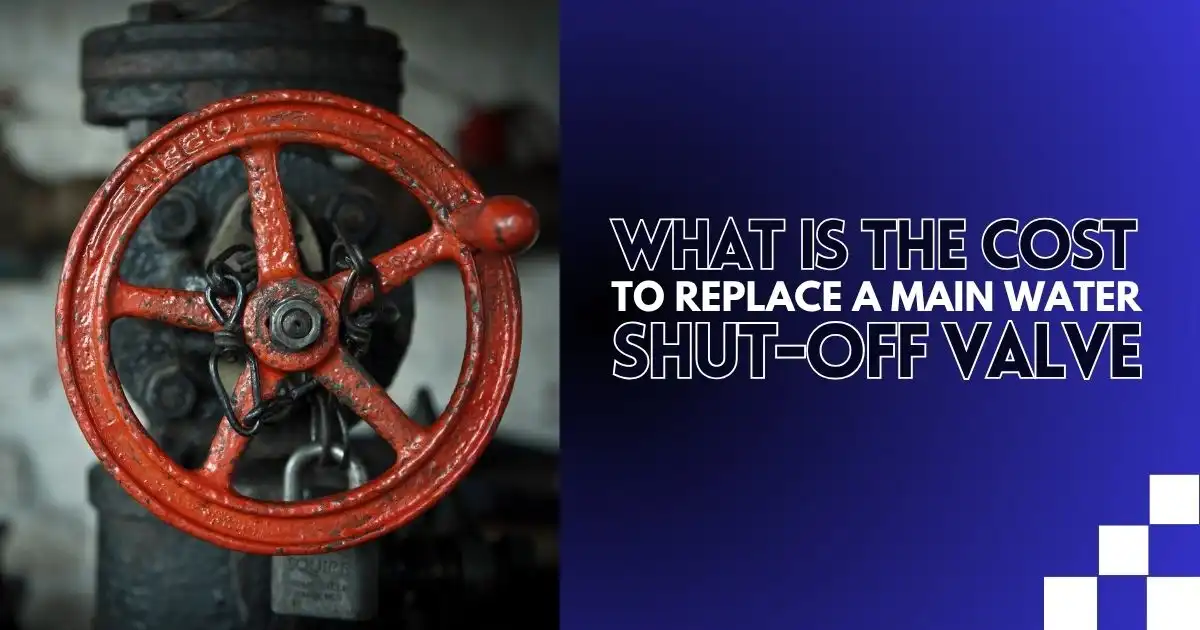When was the last time you checked your water heater? It’s easy to forget about it when everything seems to be working fine, but ignoring routine checks can lead to unexpected problems. What if your water heater stops working right before a big event or in the middle of winter? These are situations none of us want to face.
Regular checks not only help avoid sudden breakdowns but also extend the life of your water heater, saving you money on costly repairs or replacements. Isn’t it better to spend a few minutes now rather than dealing with a major inconvenience later?
How Often Should You Check Your Water Heater?
Regular checks can save you from costly repairs and headaches. Experts recommend inspecting your water heater every two months to avoid problems like leaks or burst pipes. According to studies, about 75% of water heaters fail by the time they’re 12 years old, and many of these issues could be prevented with routine maintenance.
You don’t need to wait for a major inspection. Take a quick look whenever you’re near the water heater to make sure there are no leaks, rust, or strange noises. Simple habits, like paying attention to water temperature or pressure during daily tasks like doing dishes or taking a shower, can help you spot early signs of trouble.
Signs Your Water Heater Might Be Failing
A water heater inspector can show small or big signs when it’s starting to fail. Catching these signs early can help you avoid losing hot water completely. Here are some common warning signs to watch for:
- Tapping or knocking noises
- Not enough hot water
- Water temperature going up and down
- Leaks around the tank
- Bad smell in the water
- Rusty or brown-colored hot water
You should also keep your water heater’s age in mind. If it’s over 10 years old and showing any of these issues, it might be time to think about getting a new one. Most water heaters last 6–12 years, while tankless models can last up to 20 years. Once your heater is over 10 years old, problems are more likely to happen.
Annual Professional Water Heater Inspection Checklist
Inspecting your water heater on your own is a great way to catch early signs of trouble, but sometimes it’s best to call a professional. A water heater expert can check hot water heater systems thoroughly, find and fix problems that might not be obvious, and inspect parts of the system that could be unsafe for you to handle.
During a professional inspection, your local contractor will:
- Look for leaks, damage, or rust.
- Test the pressure relief valve (TPR valve).
- Check for hidden leaks that are hard to see.
- Flush the tank to remove sediment.
- Inspect the anode rod for wear.
- Check the gas line for gas heaters.
- Inspect the venting system for gas heaters.
- Test the heating element for electric heaters.
- Check water quality, including PH levels.
The plumber will let you know if repairs are needed or suggest replacing the water heater if it’s too old or worn out. It’s a good idea to have a professional inspect your water heater once a year to keep it working properly.
Tips for Water Heater Maintenance
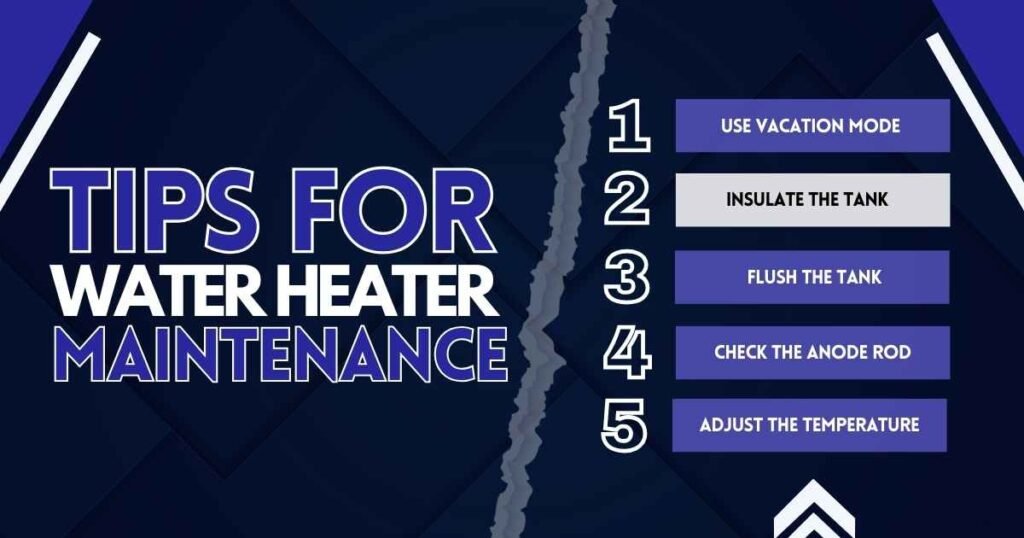
Besides regular DIY and professional inspections, there are other easy ways to help your water heater last longer. Some tasks can be done by a professional, but if you feel confident, you can try these yourself to ensure you always have hot water:
- Use Vacation Mode: If your water heater has a vacation mode, turn it on when you’re away to save energy. You can also lower the temperature during this time.
- Insulate the Tank: Wrap your water heater with a thermal blanket to reduce energy use. This keeps the water hot longer and saves on heating costs.
- Flush the Tank: Every six months, drain and flush the water heater to remove sediment that collects at the bottom.
- Check the Anode Rod: Look at the anode rod for signs of rust or wear. Replacing it when needed can prevent tank corrosion.
- Adjust the Temperature: Ensure the temperature setting is correct. If the water isn’t hot enough even after adjustments, it could mean there’s an issue with the sensor or regulator.
These simple steps, along with regular inspections, will help keep your water heater working well, giving you hot showers and clean dishes. They’ll also reduce the chances of needing an emergency repair.
Who Should Inspect Your Water Heater?
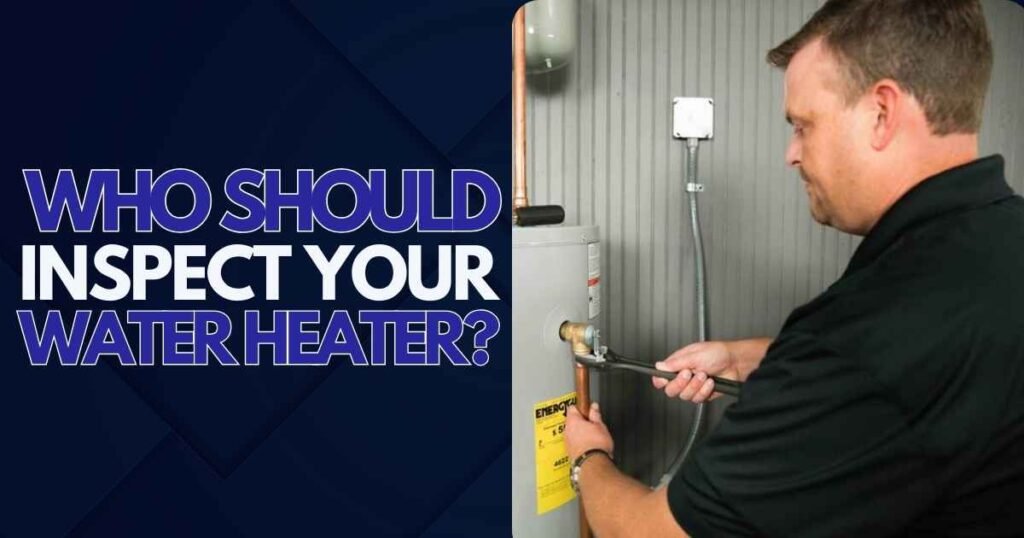
A professional who specializes in water heaters is the best choice for a hot water heater inspection. Home inspectors usually don’t do detailed checks on water heaters, so it’s better to hire someone with experience in water heater installation and repairs. If repairs are needed, a specialist can often handle small fixes right away. The cost of water heater repairs typically ranges from $220 to $980, depending on the issue.
An inspection might also show that it’s time to replace your water heater. Replacing a water heater usually costs between $880 and $1,800. It’s a good idea to plan a replacement before the heater completely fails to avoid being stuck without hot water for a long time.
Small Checks, Big Savings
Instead of ignoring your water heater until something goes wrong, taking the time for regular checks can save you from unexpected stress. Like any part of your home, a little care goes a long way in keeping things running smoothly. It’s about balancing convenience today with preparation for tomorrow. When you invest a bit of time in maintenance, you avoid bigger problems down the road and keep your home comfortable.
Don’t wait for your water heater to give you trouble. Let Vegas Plumbing Pros help you with expert inspections and maintenance to keep your water heater running smoothly. A little care today can save you from big headaches later. Contact Vegas Plumbing Pros now to schedule your water heater checkup and ensure your home stays comfortable year-round!
FAQs
How often should your water heater be inspected?
Plan to service your water heater at least once a year to keep it running smoothly and avoid costly repairs. The most important step in maintenance is flushing the tank. Over time, sediment builds up at the bottom of the tank, which can reduce efficiency, make the heater work harder, and even shorten its lifespan.
What maintenance is needed for a water heater?
Water heater maintenance includes flushing the tank, checking the anode rod and replacing it if needed, looking for rust or leaks, and testing the thermostat and valves. Flushing the tank is the most important step and should never be skipped.
How do you check your water heater?
To check your water heater, turn off the power for safety. Look for leaks, rust, or damage, and ensure the temperature is set to 120°F. Flush the tank to remove sediment and clear the area around it for proper ventilation. Check heating elements for wear and replace if needed. For major issues, call a professional.
What is the preventive measure on a hot water heater?
Flushing your water heater once a year is important to remove sediment buildup that can lower its efficiency. It’s also a good idea to check the heating elements regularly. If they show signs of wear or damage, replacing them can help ensure your water heater heats water properly and works as it should.
